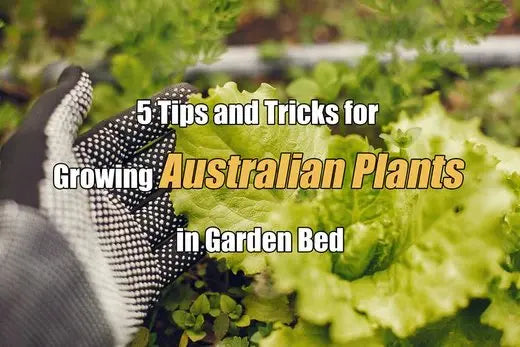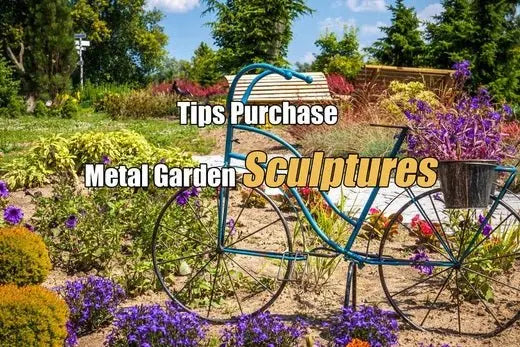Creating a Refreshing Herb Garden: Planting Peppermint and More in a Round Metal Raised Beds
By Serhii Stepanysko
Author bio: Editor and Head of Content at Jooble Advice Center.
Recently, gardening has experienced a delightful resurgence, with more people embracing the joys of growing their herbs. A herb garden not only adds a burst of flavor to your dishes but also brings numerous health benefits and contributes to a sustainable lifestyle.
In this quick guide, we will dive into the art of planting peppermint and an array of other herbs in a round raised bed. So, whether you're readying yourself to get a plant breeder job or just creating your herb garden for fun, we got you covered.

What Are the Benefits of a Herb Garden?
Herb gardens have captured the hearts of many for several reasons. Beyond enhancing the culinary experience, they positively impact the environment. Growing your herbs at home reduces your carbon footprint and minimizes exposure to harmful pesticides. Homegrown herbs are packed with essential nutrients, offering a healthier alternative to store-bought varieties. Here are three more compelling reasons why cultivating an indoor herb garden is a decision you won't regret:
- Save Money: With the cost of living ever increasing, saving a few bucks wherever possible is a welcome bonus. Growing your indoor herb garden can trim a few items from your grocery shopping list, ultimately reducing expenses. Store-bought herbs can be pricey and often come in larger quantities than needed, leading to wastage. Embracing the practice of growing your herbs ensures that you harvest just what you need, thus minimizing both food and financial waste.
- Fun: Gardening has a unique way of relieving stress and bringing joy. Cultivating an indoor herb garden provides an opportunity to connect with nature, even in urban settings. Watching your herbs grow and flourish under your care is incredibly rewarding and satisfying. It's a therapeutic escape from the hustle and bustle of daily life, allowing you to unwind and find solace in the nurturing process.
- Aesthetic: Beyond the practical benefits, an indoor herb garden adds a touch of beauty and charm to your living space. The sight of vibrant greenery thriving indoors is a treat for the eyes and can instantly brighten up any room. Whether you choose a simple windowsill arrangement or a more elaborate vertical garden, the visual appeal of an indoor herb garden enhances the overall ambiance of your home.
Also read: Can you Grow Herbs Inside Without Direct Sunlight?
Can you Plant Herbs in Metal Raised Beds?
The world of gardening is continually evolving, and with it comes innovative techniques that challenge traditional norms. One such trend that has sparked curiosity and excitement is planting herbs in metal containers.
If you're an aspiring herb gardener or looking for jobs as a herb gardener, you might wonder, "Can you plant herbs in metal bed?" The answer is a resounding yes! Here is a quick summary of the advantages and considerations of cultivating your herbs in metals.
Advantages of Planting Herbs in Round Metal Raised Beds.

Durability and Longevity
Metal garden beds offer exceptional durability and longevity. This makes them an ideal choice for herb gardening. Unlike traditional terra cotta or clay pots, metal containers are resistant to cracking and chipping. Thanks to these features, you can rest assured that they can withstand the test of time. With proper care, these sturdy containers can last for years, providing a reliable home for your precious herbs.
Better Drainage
Metal garden beds often come equipped with drainage holes or can be easily customized to allow excess water to escape. Adequate drainage is crucial for herb growth, as it prevents waterlogging and root rot, ensuring a healthy and thriving herb garden.
Aesthetic Appeal
Metal garden beds exude a modern and stylish charm, adding a touch of sophistication to your herb garden. They come in various shapes, sizes, and finishes. This means that you have all the freedom to personalize your gardening space according to your taste and decor. It doesn't matter whether you fancy sleek stainless steel or rustic galvanized metal. These containers can elevate the visual appeal of your indoor or outdoor herb garden.
Temperature Regulation
Metal garden beds, particularly those with light-colored finishes, possess excellent reflective properties. This means they can effectively regulate soil temperatures by reflecting excess heat away from the plant's roots during scorching summers. Conversely, they retain warmth in colder weather, safeguarding the herbs from chilly nights.
Versatility and Portability
Metal garden beds are lightweight and easy to move around, providing flexibility in positioning your herb garden. This portability is particularly advantageous for gardeners with limited space or those who want to rearrange their garden setup from time to time.
Considerations for Planting Herbs in Round Metal Raised Beds
Temperature Sensitivity
While round metal raised beds offer temperature regulation benefits, they can also become excessively hot under direct sunlight. Herbs with delicate root systems might be vulnerable to heat stress in such conditions. Consider placing metal containers in partially shaded areas or using insulating materials like mulch to protect the roots during extreme heat.
Rust Prevention
Rust can be a concern with round metal beds, especially in regions with high humidity or consistent exposure to moisture. Opt for containers made from rust-resistant materials, such as galvanized steel raised garden beds or aluminum raised garden beds, to ensure your herbs remain in optimal health.
Watering Needs
Round metal containers tend to retain less moisture compared to porous materials like clay. Regular monitoring of soil moisture is essential to prevent the herbs from drying out. Consider using self-watering mechanisms or incorporating water-retaining additives to maintain consistent moisture levels.
How Do You Care for Peppermint and Related Herbs in Round Metal Garden Beds?
Peppermint is a standout herb in any garden with its refreshing aroma and taste. Beyond garnishing dishes and beverages, it boasts remarkable medicinal properties.
Peppermint aids digestion and alleviates stress, making it a valuable addition to your herb garden. Now, caring for your herb garden ensures a continuous supply of fresh and aromatic herbs.
To tackle common challenges, embrace eco-friendly pest management methods and adopt preventative measures against extreme weather conditions. Sustainable gardening practices like composting and water conservation protect your herbs and contribute to a greener planet.
QR code might also come in handy, as you can enhance your herb gardening experience by gaining instant access to valuable inform
Conclusion
To put it briefly, adopting sustainable gardening practices contributes to a healthier planet and a more fulfilling life. So, embrace the joy of cultivating fresh herbs and savor the flavors they bring to your culinary endeavors. Happy gardening!


